Are you interested in taking your gardening decor to the next level?
If so, you may have considered growing your plants in containers. Containers are awesome because they can help conserve water and offer space-constrained gardeners a better way to grow a few plants. You can make your own self-watering planter here, but if you don't need that extra level of cleverness, then you've come to the right place.You don’t have to waste your space on boring terracotta planters. Instead, you can make your own concrete planter.
Does that still sound dull? What if we told you that you can easily make a concrete planter...that looks just like a pair of hands?
It sounds like a complicated endeavor, but believe it or not, it’s actually quite simple to do. Jenise at DIY Fun Ideas has all the information you need to know to make this fun craft (there’s also a helpful video here), but if you’re in a hurry, we’ll walk you through the steps quickly in this article.
Here’s how to make your own DIY concrete hand planter to spruce up your garden this season. If you wish to purchase one there are hundreds on Wayfair's concrete planter section.
How to Make a Fun DIY Concrete Hand Planter
Step 1: Buy the Concrete
Your first step in making concrete planter hands is to buy your concrete.
You can buy bags of concrete at most home improvement stores. Concrete is usually sold in large bags - the smallest bag is usually about 50 lbs, so be prepared to do some heavy lifting!
Make sure you get concrete that is designed specifically for casting. It will likely say “cement” instead of concrete. There are many different types of cement and concrete available, and while you may be able to get by with another type, this will work best for making your hand planter. Otherwise, it might shatter when you attempt to remove it from the glove.
A good cement to consider is Rapid Set Cement.
You will also want to pick up a basic breathing mask to wear. When you pour the concrete, it produces a lot of dust, which can irritate your respiratory tract.
You will also need an old gardening glove and several plastic gloves.
Here’s a full list of all the gear you need:
Concrete (Rapid Set Cement is best)
Garden trowel
Garden gloves/plastic gloves
Rocks
Mixing bucket
Step 2: Prepare the Concrete
Once you get your concrete home (and have your mask on!) go ahead and pour it into a bucket. Depending on the type of concrete you get, it might have quite a few rocks in it. If you get concrete that is designed specifically for casting, it will have fewer rocks and will blend up more smoothly, which is ideal for this kind of project.
Mix in some water based on the instructions and ratios listed on the package of concrete.
Step 3: Fill Your Gloves
Using your gardening trowel, fill your gloves with concrete. You may find that air gets trapped at the tips of the fingers. Just squeeze them to push the concrete to the bottom of the fingers.
You may find that you have to pulse your fingers along with the fingers of the glove, much as you would if you were milking a cow. Make sure there are absolutely no air pockets, as this can lead to cracks in the concrete. Fill as many gloves as you’d like for your hand planters.
If you want your two hands to come together in a joined planter design, you will want to cut a slight along the pink side of the glove, press out a bit of cement, and then join the two hands together. Do this without delay so the two hands dry together. You can also shape your fingers so that they are positioned in the way you want them and add rocks to hold them in place.
Step 4: Let the Cement Dry
The cement will dry pretty quickly and you may find that the hands get warm to the touch as they do. They’ll feel dry and hard within an hour or so, but you may want to wait several more hours before you do anything with the planters.
Step 5: Remove the Gloves
Now that the cement is dry, it’s time to remove the gloves. You can make a slit with your knife and then just peel off the pieces.
Step 6: Paint Your Planters (Optional)
If you don’t want white planters, you can add a coat of paint (this is optional).
Step 7: Plant!
Now it’s time to fill your concrete hand planter with whatever kind of plants you’d like. You’ll want to choose something that is small and shallowly rooted so you don’t have to worry about your plants’ roots running out of space. Succulents work well for a concrete hand planter, as they don’t require much space (or much water).
Here's a fun video explaining this technique.

Other Uses For Your Concrete Hand Planter
Not sure whether a concrete hand planter is right for your garden?
Keep in mind that this fun craft can be used in all kinds of other settings, too. You can use it as a holder for your keys or spare change, or you can make spooky Halloween decorations out of them. You could even use your DIY concrete hand planter as a centerpiece for your table. For more DIY ideas for a more beautiful garden check out our article here.
Your options are endless. This craft is so quick and easy to make, you’d be foolish not to give it a try this weekend!

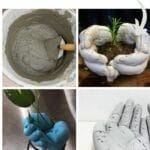
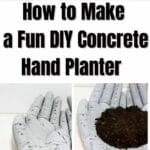
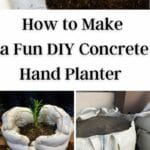
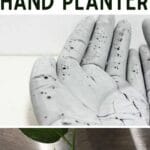
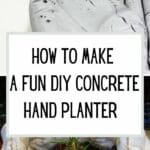
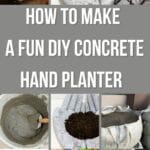
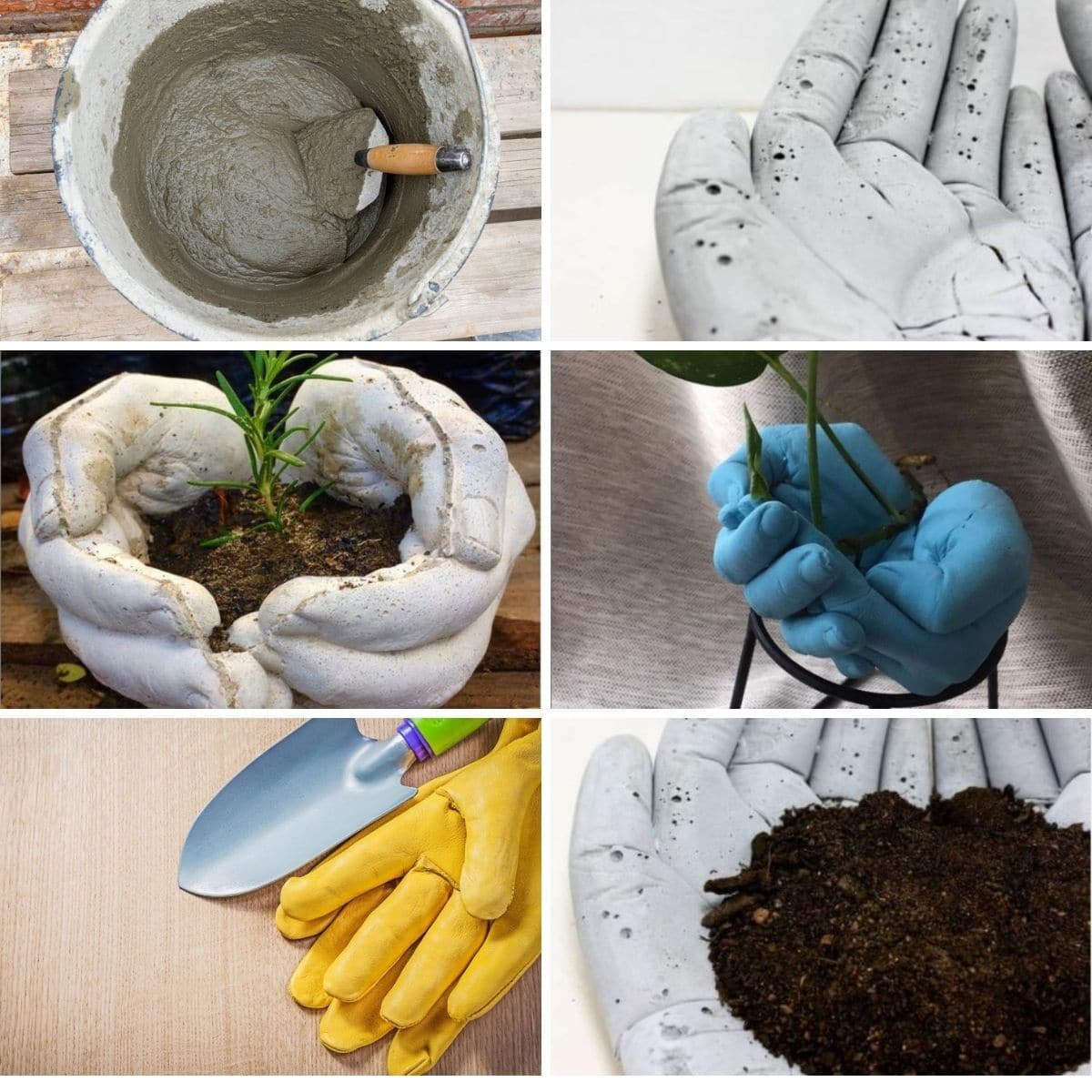
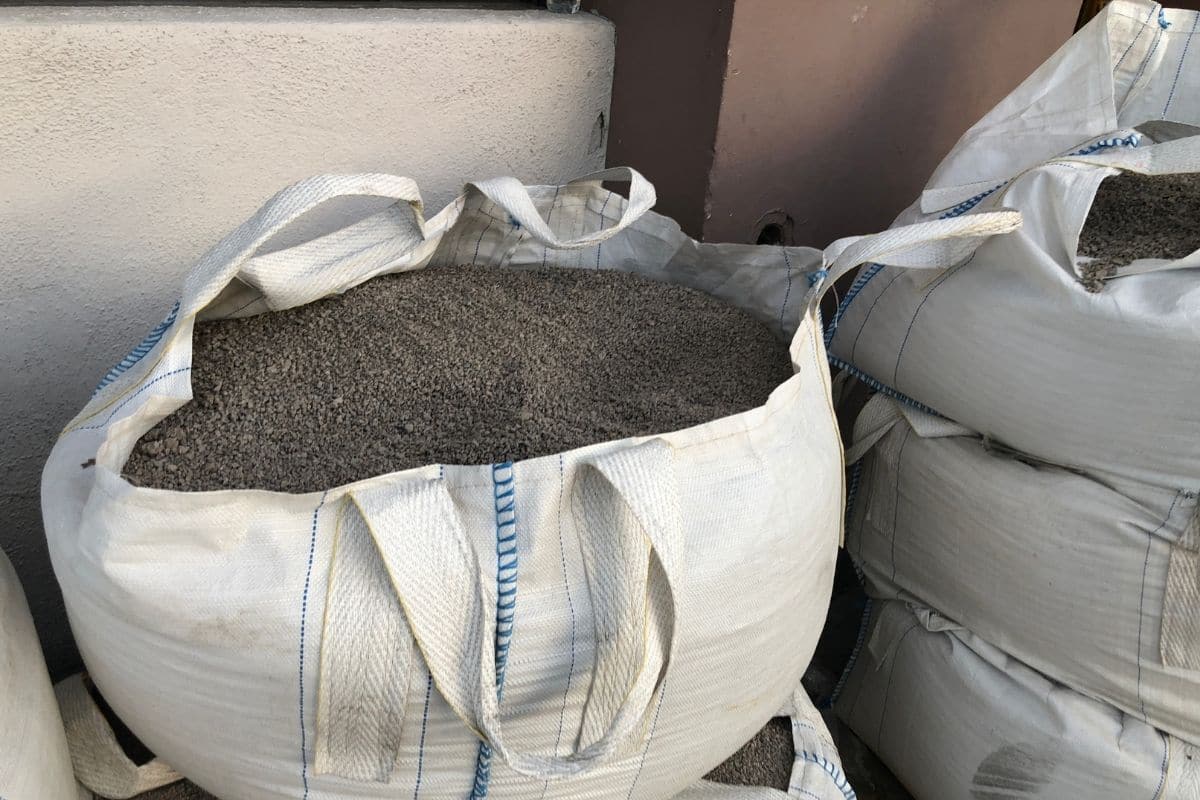
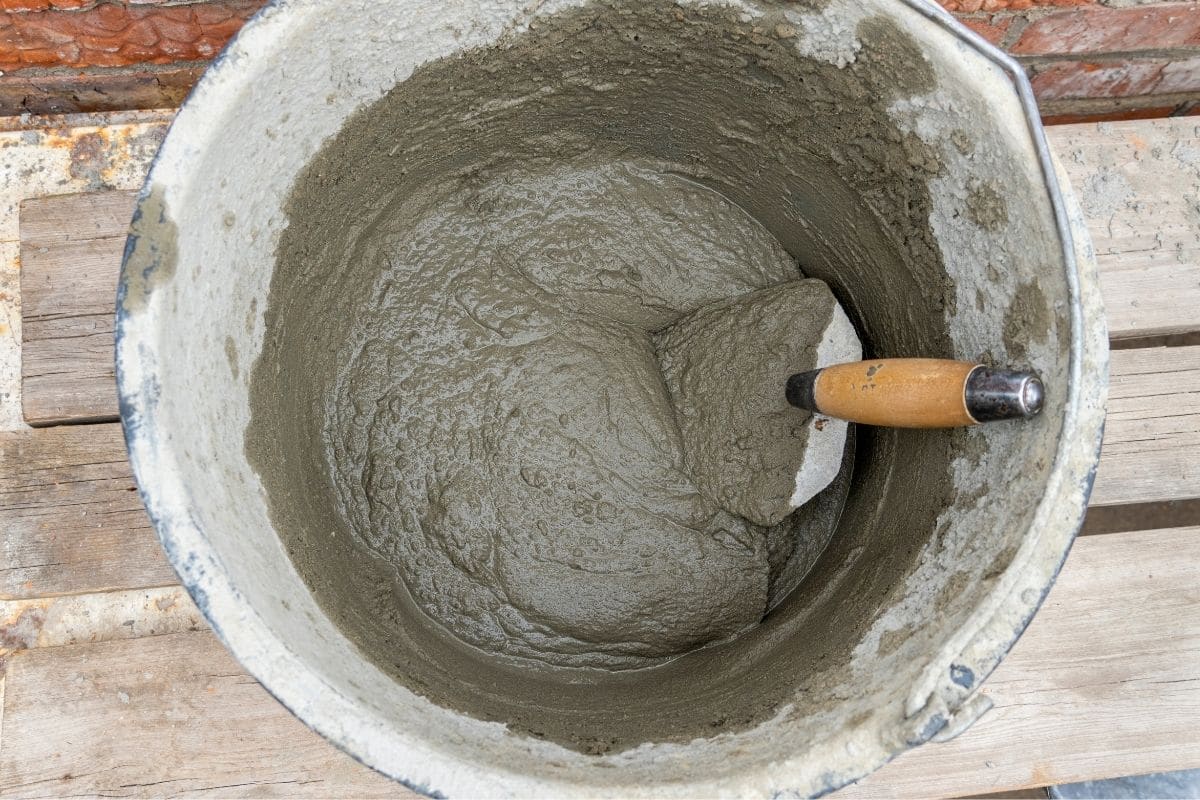
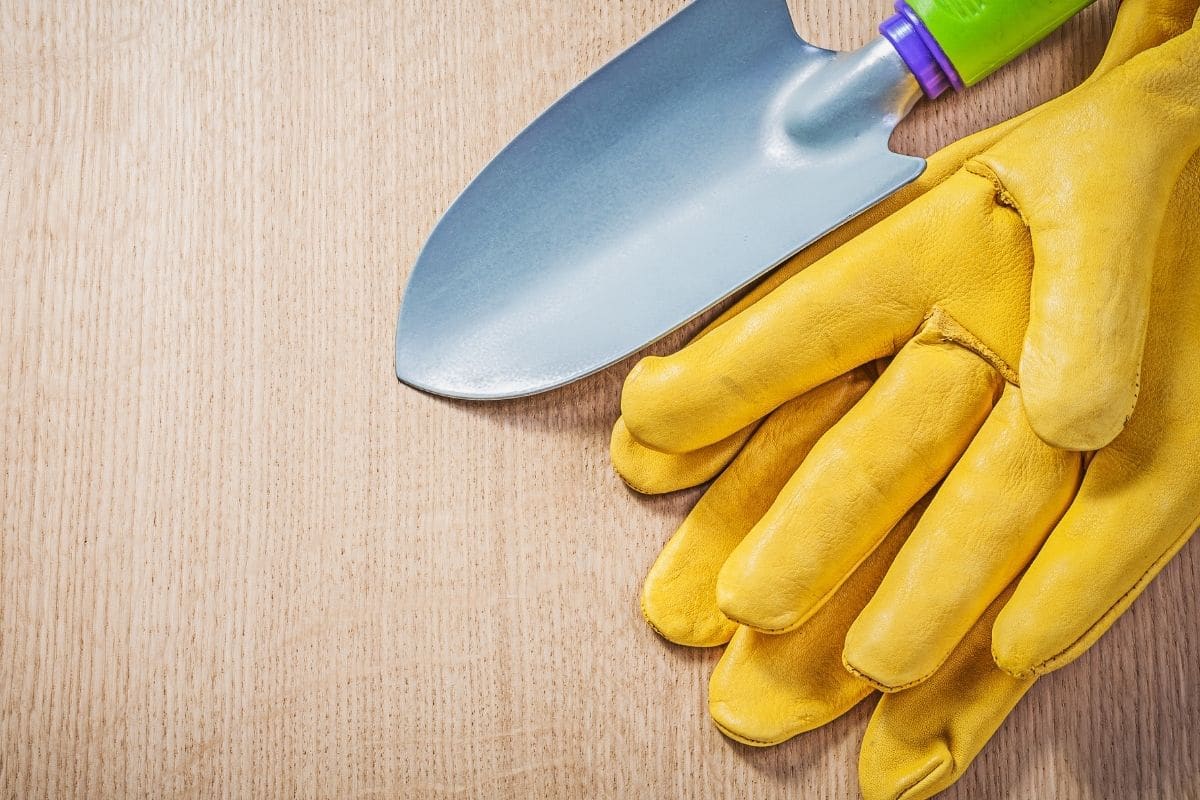
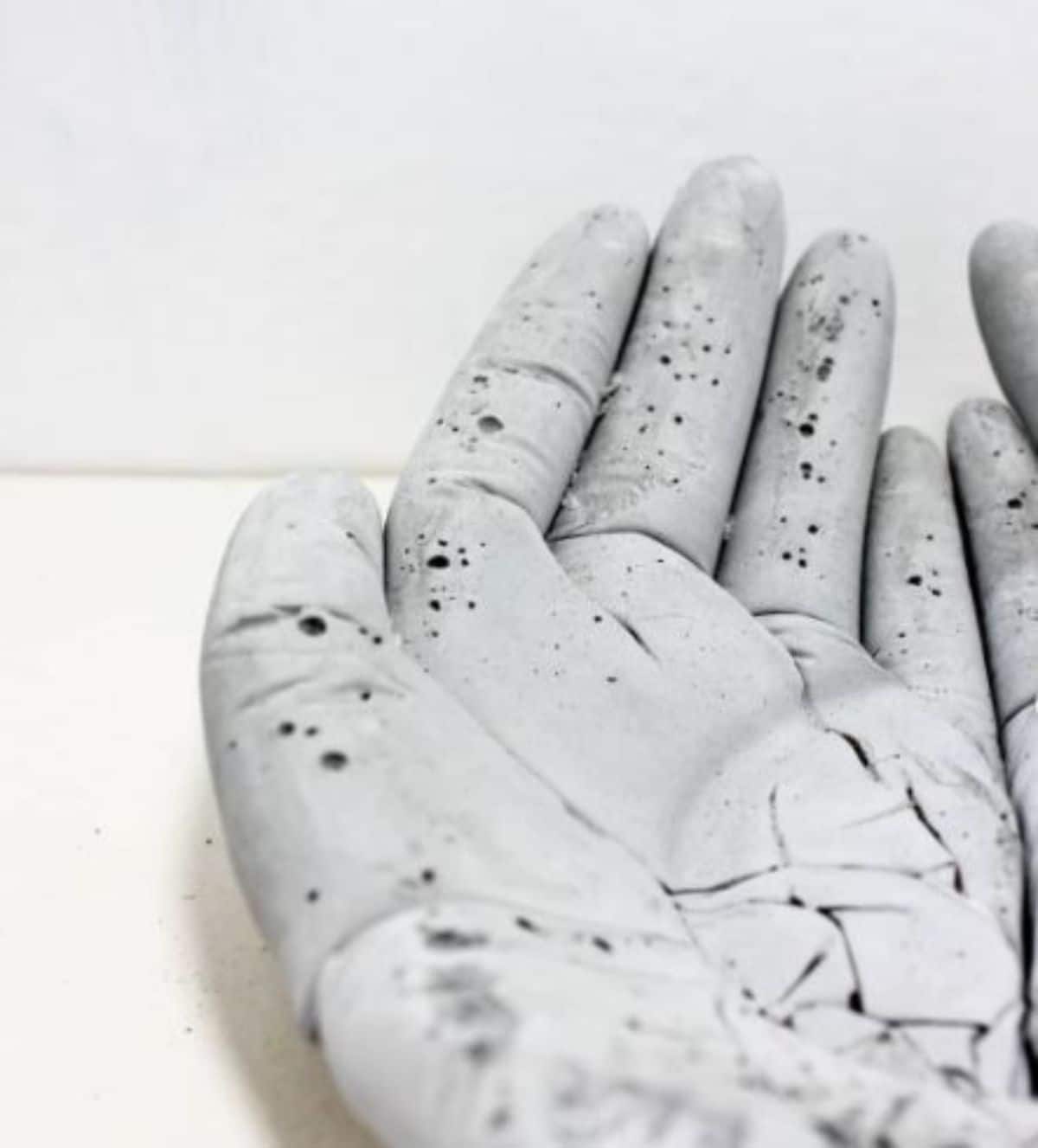
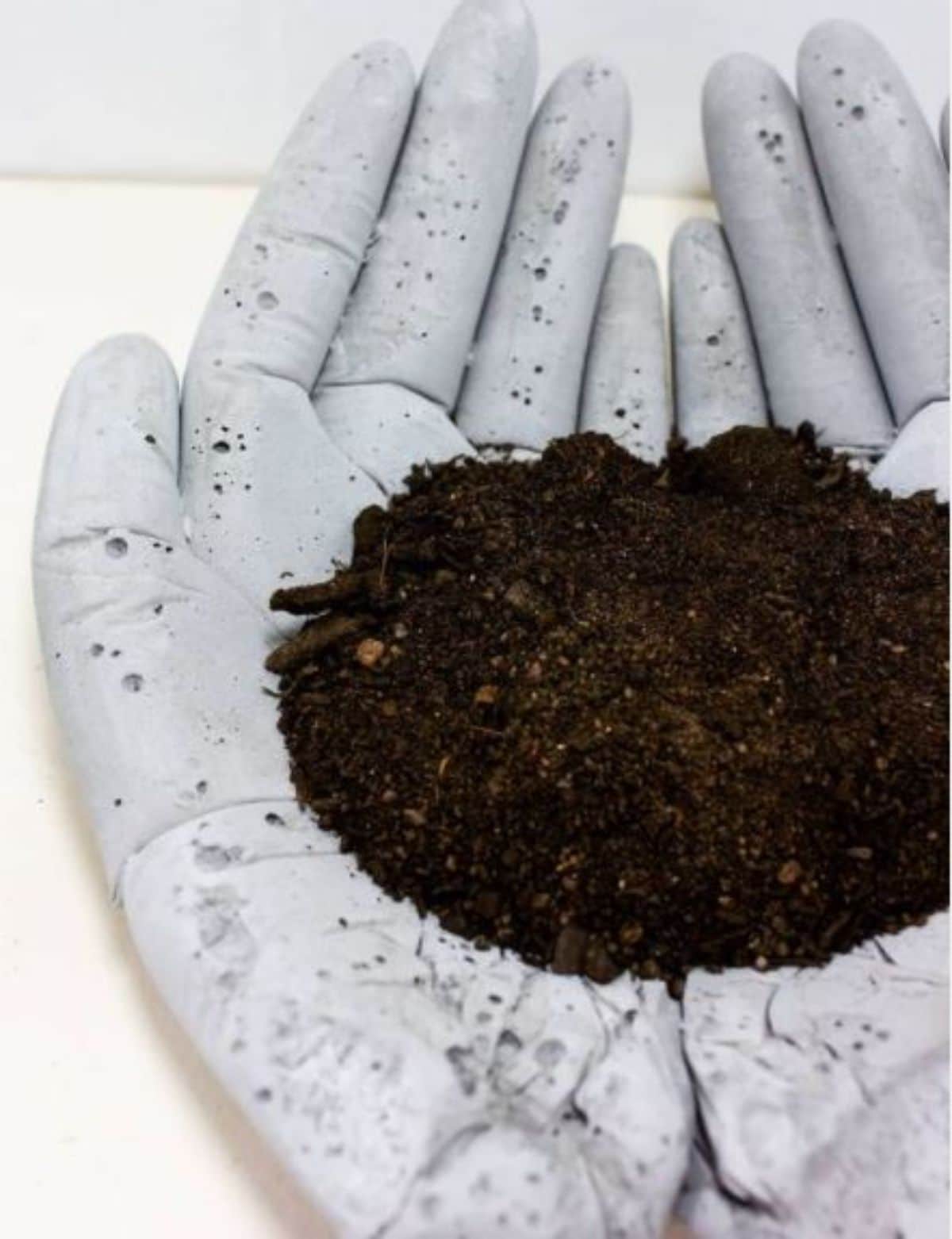



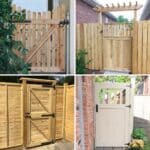
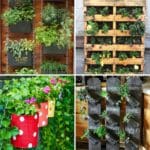

LAura
I love this! How do some of them have so much detail? (Like the fingernails and wrinkles) How do you make them so realistic before they harden?
Leena
They didn't use cement in the first step to get that detail. To get that detail, you must take a mold of your hand in alginate, then after that is dry, use that mold to pour cement in.When cement is dry then peel away the alginate and you will have great detail!